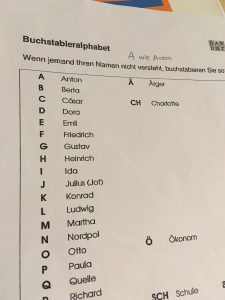After learning comparative and superlative forms of adjectives last week we started learning how to construct sentences with it. Basically, if the two things under comparison are not similar you have to use “als” like
Ich bin größer als du.
And when they are similar you have to use “so” or “genauso” with the adjective and add a preposition “wie” like
Ich esse Pizza genauso gern wie Pasta.
Simple enough right? Only difficultly was figuring out under which category of the adjective classes would it fall for deciding the comparative additive.
Our next story article went over a nice scene with a Wohnmobil next to a See. Wouldn’t it be nice if we could just transport ourselves inside the picture? Right now, in Munich it is pretty warm so staying in the water is the best way to relax. Although I don’t think everyone can swim in the Isar since it is a bit cold. I was at the Germering See this weekend where the water temperature was perfect.
Was hast du am Wochenende gemacht?

Sudeep









